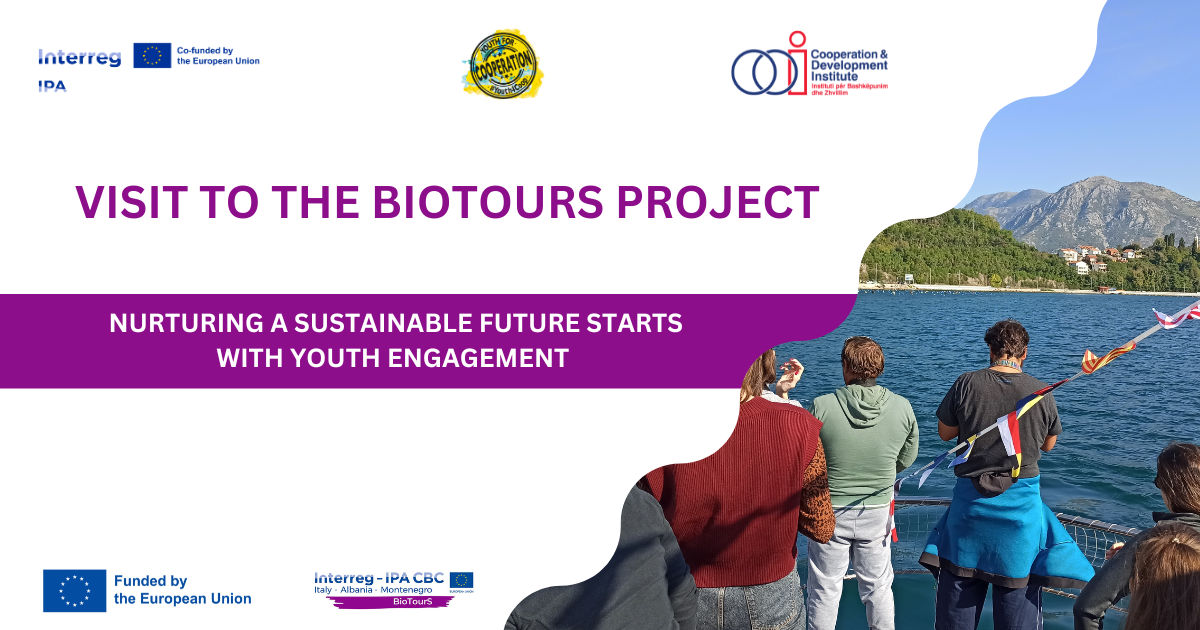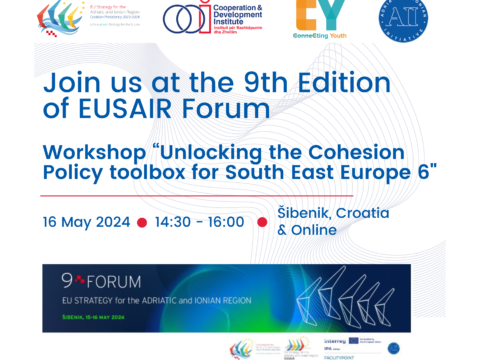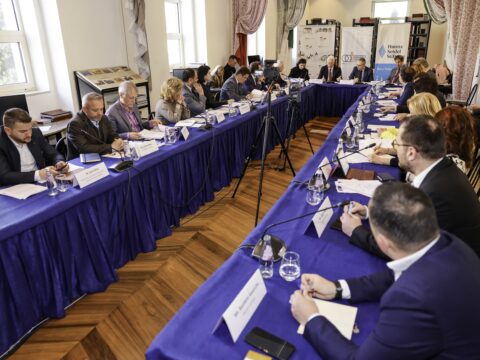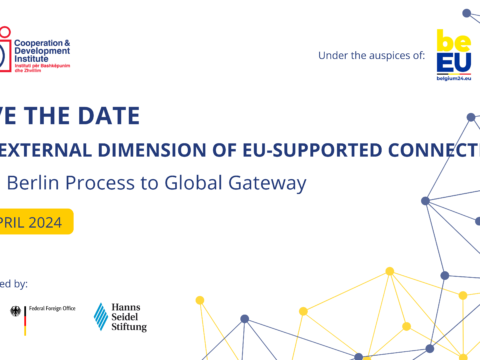31 May 2023
Youth, green and neighbors have been the three main topics of the Interreg 30 years campaign. Youth not only have been beneficiaries of the Interreg projects, but they also have come together to contribute with ideas and recommendations on how to improve the Interreg programme by creating Youth Manifesto. This document collects young people’s ideas and wishes on how to improve territorial cooperation in the future in order to make young generations feel heard by EU top decision makers. Improving young people’s skills and increasing access to training opportunities and addressing climate change issues for a better future were two of the five recommendations that they emphasized as important to be addressed by the EU policymakers.
Promoting INTERREG IPA actions is one the objectives of the initiative “Raising awareness on the Youth Manifesto in the Western Balkans”. During the project tour in the WB region promoting the Youth Manifesto, CDI team visited the ‘BioTourS’ project funded by INTERREG IPA Italy-Albania-Montenegro programme. The primary aim of the project is to introduce best practices in sustainable cross-border tourism, tackle new challenges in environmental and marine safeguard as well as preserving the natural heritage of the Adriatic-Ionian area.
We stopped at the Biotours Dolphin Center located at the premises of the Natural History Museum of Montenegro in Podgorica, funded by this project.
Mrs. Čeda Ivanović, Museum Advisor in Mammal Collection highlighted how the number of visitors reached 10.000 from the day of inauguration of this center until April 2023. The visitors number more than doubled compared to the same period of the year before.
Mrs. Ivanović also emphasized that the Dolphin Center, alongside targeted outreach and cooperation with schools, was accompanied by more than 40 workshops on sustainable tourism organized, as a way to transfer knowledge and impact young generations. Incorporating multimedia elements, touch screens, virtual reality, or augmented reality to enhance engagement and make the exhibits more interactive and immersive, makes museums more appealing and accessible to young people. Leverage technology to appeal to younger generations. As a result, schools in Montenegro have shown increased interest in initiating organized school trips to the BioTourS Dolphin Center.
Mrs. Marijana Jovović, representative of Innovation and Entrepreneurship Center Tehnopolis, shared with us how this project contributed to building the culture of sustainable tourism and lifestyle by developing different tools to raise awareness and exchange knowledge when it comes to youth and cetacean conservation in the field of marine biology. She stated: workshops have been a way to reach out to youth and finally opening the Biotours Dolphin Center in Montenegro offers the opportunity to the citizens, by using modern technology and equipment to see how cetaceans live in the Adriatic Sea, learn more about them and become more aware on the importance of protection of marine biology.’
Research Youth Camp was a very good practice of this project, which enabled 15 young girls by using ecofriendly equipment to study firsthand the life of dolphins in their natural habitat in Boca Kotor bay. For three days straight, they had the chance to expand their knowledge about how dolphins behave, how they are affected by climate change and what people can do to protect and preserve them, thus giving them the experience of a real researcher and affecting their attitude to act more responsibly towards the environment.
BioTourS project is an example of how INTERREG projects can be made visible to younger generations. By making museums interactive, educational, and relevant, you can inspire a lifelong love for nature, history, and culture among the younger generation. Moreover, youth camps include hands-on activities, group discussions, and simulations that allow participants to actively engage with various issues. By experiencing real-life situations and challenges, young people can gain a deeper understanding of societal problems and develop empathy and problem-solving skills needed for addressing societal challenges.






